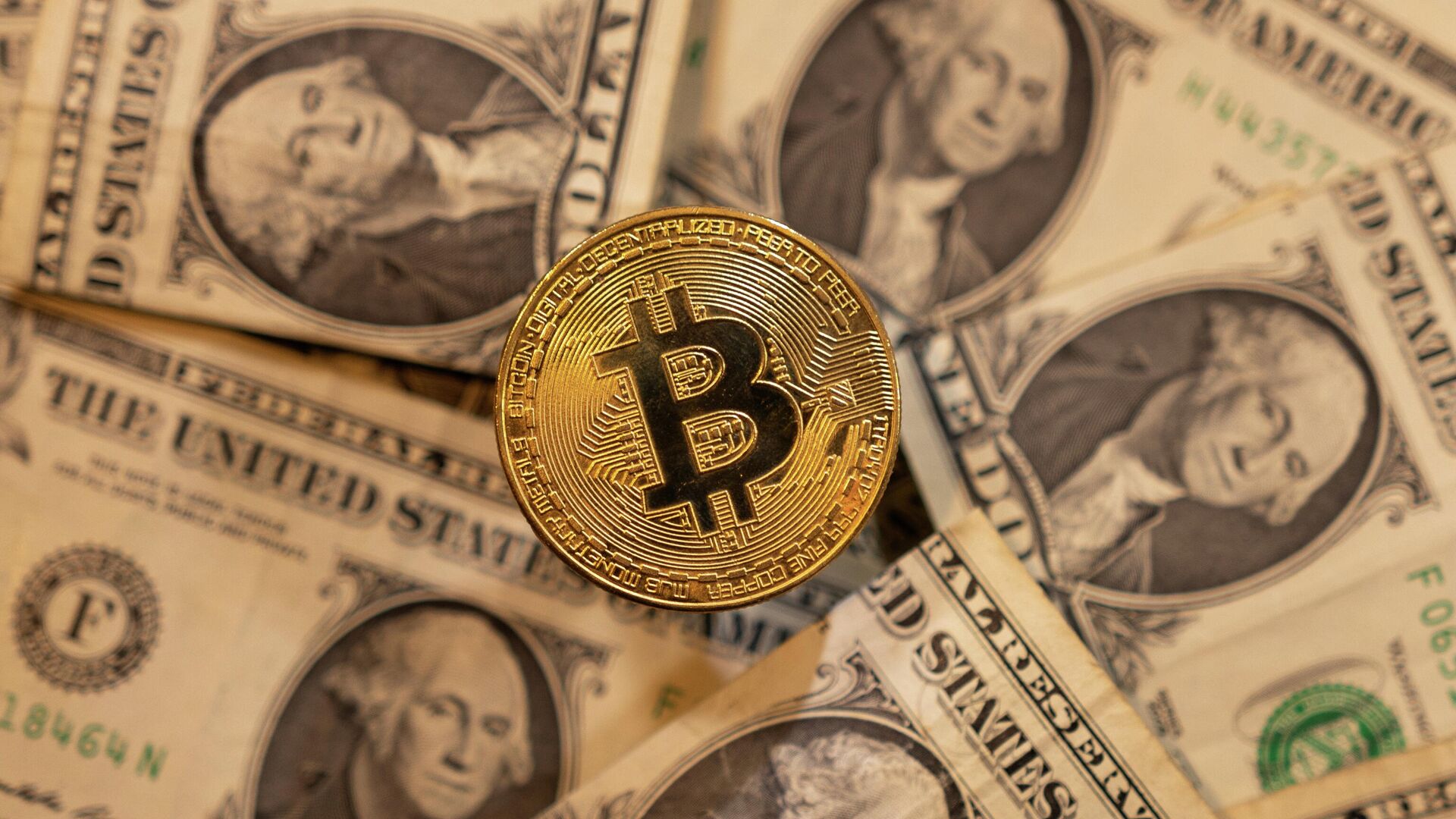Experts Predict Stricter Regulatory Measures, Bitcoin Crash in 2022 - Report
04:21 GMT 28.12.2021 (Updated: 13:27 GMT 06.08.2022)

© REUTERS / DADO RUVIC
Subscribe
All in all, the world's biggest cryptocurrency bitcoin has grown at a pretty nice rate this year. Since the beginning of 2021, the digital currency has increased by about 70%, bringing the total worth of the crypto market to $2 trillion. But recent price volatility and increased regulatory scrutiny might dim bitcoin's prospects.
This year, which inevitably nears its end this week, saw the emergence of Coinbase, the first big crypto business, as well as the increased participation of Wall Street banks like Goldman Sachs in the ever-growing crypto trend, while the first bitcoin exchange-traded fund was also approved in the United States.
And in November, bitcoin hit a new high of around $69,000. However, it is currently worth less than $50,000, down about 30% from its high. Bear markets, according to Wall Street moguls, are defined as a drop of 20% or more from recent highs, but bitcoin is infamous for its volatility.
This gives some experts, quoted in a Monday report by CNBC, reasons to expect that cryptocurrencies will plummet in the next months.
Carol Alexander, a finance professor at Sussex University, told the outlet that bitcoin will crash to $10,000 in 2022, wiping out all of its gains over the previous year and a half.
"If I were an investor now I would think about coming out of bitcoin soon because its price will probably crash next year," she said, adding that now bitcoin is more like a "toy" to investors than an asset.
The expert reportedly believes that the history of market bubbles will repeat itself with cryptocurrency. For instance, after soaring to a high of nearly $20,000 a few months prior, bitcoin fell close to $3,000 in 2018.
Supporters of bitcoin frequently claim that things are different this time because more institutional investors are entering the market, but Todd Lowenstein, Union Bank's private banking division's chief equity strategist, said that such a narrative echoes the historic precedents.
To some, the approval of the first spot bitcoin exchange-traded fund (ETF) in the United States is a major event that should be carefully observed in 2022.
Because despite the fact that the Securities and Exchange Commission approved ProShares' Bitcoin Strategy ETF in October, this product monitors bitcoin futures contracts rather than providing investors with direct exposure to the cryptocurrency.
Given that futures are financial contracts that bind an investor to purchase or sell an asset at a predetermined price at a later date, experts warn ProShares' ETF, which tracks futures prices rather than bitcoin values, could be too dangerous for beginner traders, many of whom are already involved in crypto.
"The Bitcoin Futures ETF that launched this year has been widely regarded as not very retail-friendly given the high costs involved of rolling over contracts which amounts to around 5-10%," Vijay Ayyar, vice president of corporate development and global expansion of cryptocurrency exchange Luno, is quoted as saying.
The expert added that the conversion to bitcoin spot ETFs could be seen as a move caused by the size and "maturity" of the market.
This position is supported by reports that Grayscale Investments has filed to convert its bitcoin trust, the largest bitcoin fund in the world, into a spot ETF, while there is also a slew of other bitcoin ETF proposals in the works.
Another point is that bitcoin's market share has dwindled as the crypto market has grown, with other digital currencies such as ethereum now playing a larger role. Analysts expect this trend to continue throughout the next year, as investors seek tiny pockets of cryptocurrency in the hopes of making large gains.
"As retail investors begin to realize the dangers of trading bitcoin, especially on unregulated venues, they will switch to … other coins belonging to blockchains which actually serve an essential and fundamental role in decentralized finance," Carol Alexander predicted. "This time next year I predict that bitcoin’s market cap will be half the combined cap of smart contract coins."
Moreover, it is said that so-called DeFi, or Decentralized Finance, will play a much larger role next year as a way for investors to avoid regulatory pressure and unnecessary middlemen in a fast-paced emerging market.
According to the report, this year, the total amount of money placed into DeFi services reached $200 billion for the first time, and experts predict that demand will continue to rise through 2022.
And that is when we come to one of the biggest threats predicted for the next year, the wider and much harsher regulation of cryptocurrencies.
"2022 will be a big year on the regulatory front, no doubt," said Vijay Ayyar. "The interest from various governments, and especially the US, to bring regulation into the crypto space has not been higher."
This year, regulators applied increasingly tighter restrictions on cryptocurrencies, with China outright prohibiting all crypto-related operations and the US government tightening down on specific areas of the business.
The expert from Luno believes the legal "gray zone" of cryptocurrencies other than bitcoin and ethereum, which the SEC has said are not securities, will be clarified in 2022.
Furthermore, stablecoins are another significant area authorities are expected to focus on next year, according to the report. These are digital tokens whose value is determined by the price of existent assets such as the US dollar.
Tether, the world's largest stablecoin, is considered especially divisive, with questions regarding whether it has enough assets in its reserves to support its dollar peg.
"Undoubtedly more scrutiny is forthcoming around stable coins as regulators look under the hood on the soundness of the underlying collateral and amount of leverage deployed," Todd Lowenstein said.



